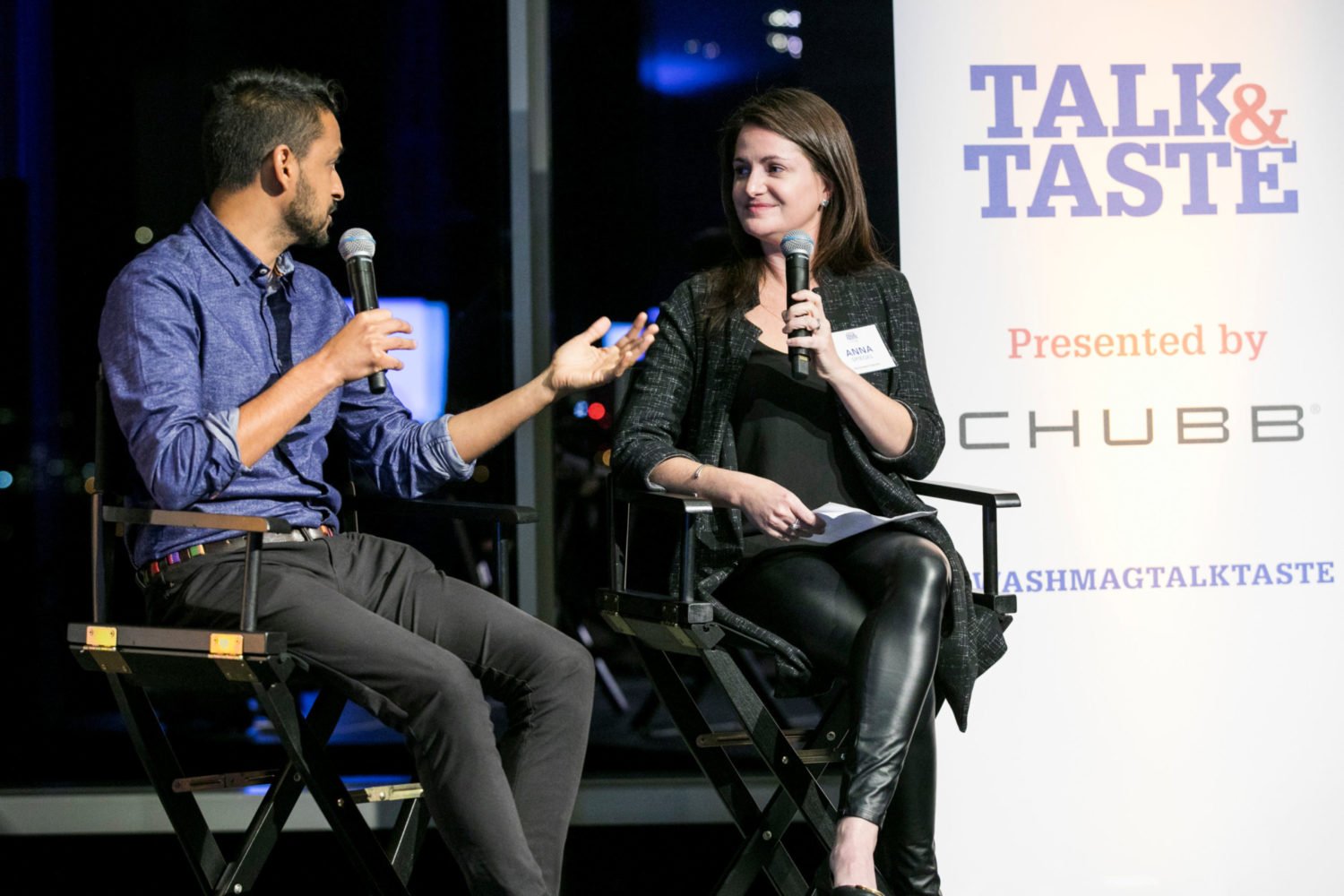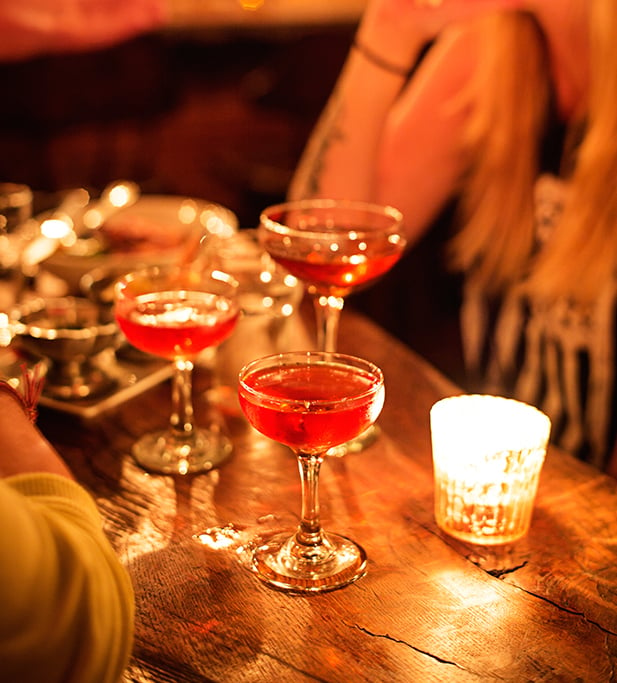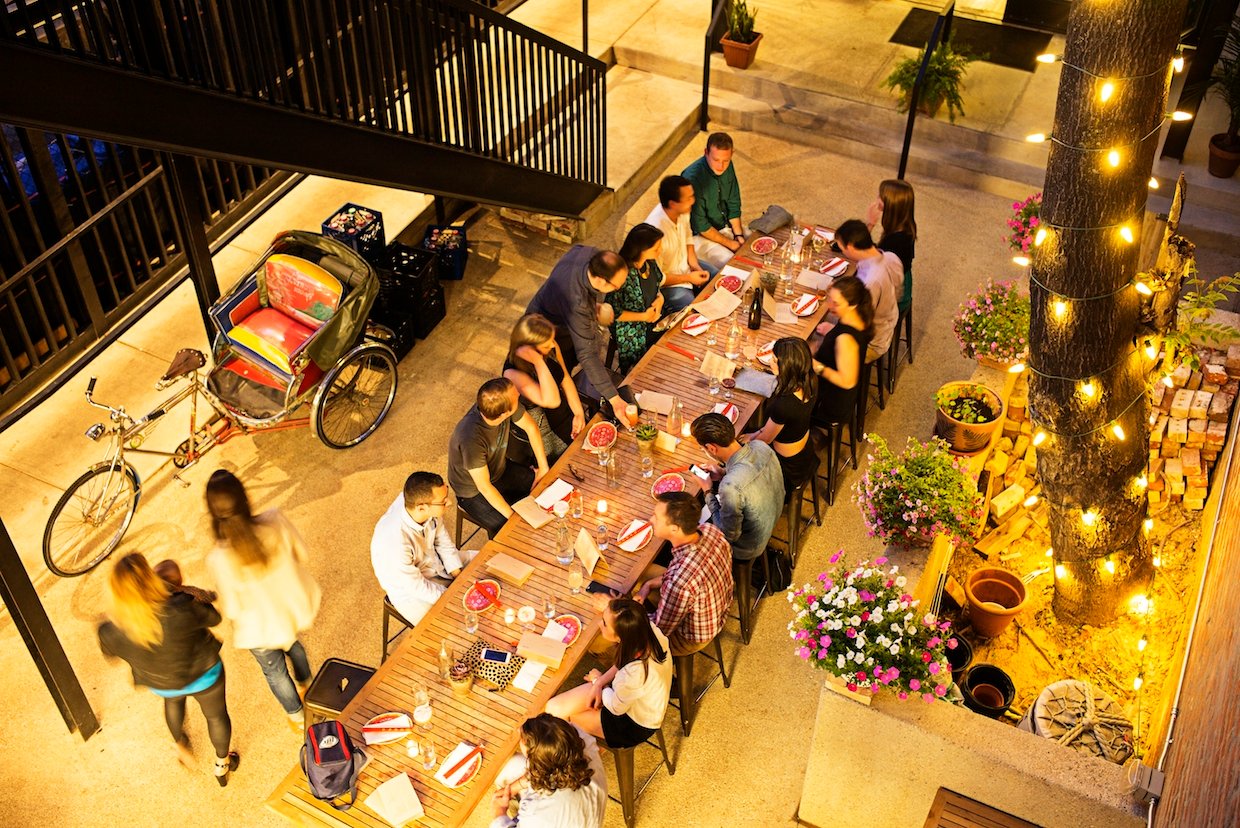
Yes, another Caitlyn Jenner piece.
But not a piece that celebrates her bravery or her heroism, or takes aim at the validity and applicability of those words.
Not a piece about how great she looks, or how caricatured.
Not a piece about the broad implications for the trans community, or the trivial ramifications of what new celebrity age has just been ushered in.
How interesting and telling and rich that reactions to the unveiling have split into these safe and strict binaries. Either this or that. One thing or the other. Us or them.
If a moment like this can teach us anything—beyond, that is, how vacuous and virulent debates about issues of cultural consequence often are—it’s that identity is a complicated thing, hard to explain, harder to pin down. It is neither one thing or another. In our sexuality, in our spirituality, in our philosophy, few of us occupy either a black or white, just as few of us occupy a political red or blue. It is neither always or never. We are forever changing, forever in flux. Our ideas, our perceptions, and, yes, our bodies.
— Caitlyn Jenner (@Caitlyn_Jenner) June 1, 2015
What have we seen over the past two decades, as gay rights and gay marriage have become mainstreamed and the old societal definitions of family and identity have blurred? We have seen that when people are given the freedom to choose, permitted directly and also indirectly to pursue the lives that make them feel most like themselves, to pursue happiness, they are inclined to check different boxes and define themselves according to their own standards.
Pursuit of happiness. The very idea is sewn into the Declaration of Independence. Ours is a nation of self-interest, of self-actualization. A nation of self. Notice that there is nothing in this oft-repeated phrase, life, liberty and the pursuit of happiness, about doing for others, helping others, lifting up others. Nothing about community. We are united, if we are united in anything, in our mutual self-interest. The document declares that our government is here to protect this right to pursue happiness. The right to pursue happiness! To seek happiness as an exalted state, as the very embodiment of living in this, the greatest experiment in democracy the world has ever known.
****
I didn’t find my way to these thoughts this week. I’ve been turning them over in my mind for nine years, ever since a force of nature named Jenni McCloud entered my life one summer afternoon.
I had sought her out after drinking a bottle of Norton, a wine I had never heard of, from her Aldie, Virginia, vineyard, Chrysalis. Jenni was passionate to the point of obsession about the Norton, a wine, I came to learn, that many dismissed or disdained. Sometimes her talk drifted into a kind of evangelism; other times I sensed that she was avenging a deep and long-standing injustice.
Norton was not, and would never be, Cabernet Sauvignon, or Pinot Noir, or Merlot. It lacked status, and in the world of wine, even more than in the world at large, status is the difference between being taken seriously and being dismissed, between being seen as having something to contribute and being seen as mere marginalia. Virginia, too, lacked status. It was not Napa, Oregon, or Washington. She had looked at plots of land in those more established regions, she said, but what appealed to her more, and persuaded her to sell her Florida-based diagnostic software company and come north, was the notion of producing a wine no one had ever heard of in a region without a fixed identity.
That first afternoon she had said to me, “I don’t want to make the world’s 350th best Merlot. I want to make the best Norton.” It was a rehearsed line, polished to a fine sheen, and I did not think much more of it than that she was trying to tell me something about her determination to succeed with this obscure grape.
Over the next year-and-a-half, over barbecue lunches and long rambling trips to neighboring vineyards to check out the competition and dinners during which I shared with her my research into the melancholic life of Dr. Daniel Norton, the grape’s father and a man she had come to consider her spiritual kin, Jenni and I became friends. She was earthy and funny, cursed like a nightclub comic, and had an appetite for adventure that seemed almost unappeasable. She was in her mid-50s; she might have been in her mid-20s.
One afternoon we were on the way to a wine tasting, Jenni at the wheel, and talking about our fathers. Hers had died, mine had recently fallen ill. She had six children, I had none, though that was about to change, I said, talking excitedly about the baby that would be arriving five months later. She became silent as the car hurtled on toward the vineyard and, turning to me with wet, shining eyes said, “Those six children I told you about? I fathered those children.”
I’ll never forget that moment: its honesty, its vulnerability, its intimacy, its implication of a deep and tender trust. Rarely have I felt a more profound sense of a person’s nakedness.
In the weeks and months that followed, I realized that we had entered into something—what, exactly, that something was, I didn’t know. But it was something. I felt protective of her and of it.
I churned over Jenni’s confession for weeks, for months. Some people go to therapy. Some turn to their journal. Some, the lucky ones, assimilate experience and go on living. The cursed ones write. We write because we can’t not. Because without a way to convey our experiences in words, we can’t really live. Writing is not simply what we produce; it is a way of engaging with life; it is the process that enables us to live.
By this point I had spent a year, on and off, researching the life of Dr. Norton, and the up and down (but mostly down) history of the grape he fathered, and, because I am an obsessive, too, this had meant reading not just horticultural manuals and old letters that necessitated the wearing of white gloves, but also a couple dozen social and cultural histories of 19th-century America, as well as countless biographies of the great personages of the last half of that century, from presidents to poets.
One day, thinking about Jenni and what she had confided to me, I found myself thinking about her line about the Norton. I don’t want to make the world’s 350th best Merlot. I want to make the best Norton.
And suddenly it dawned on me. Not a message about determination. Not a message about varietals, or branding, or the challenges of the marketplace. Jenni had been speaking about herself, about her need to live her life as the particular, idiosyncratic being she was.
Singularity.
The irreducibility of the individual at her freest.
What was this, but a stirring and full-throated song of the self?
No doubt this reading had been colored by my reading of (and about) Walt Whitman, whose emergence, along with that of Twain and jazz, coincided with the Norton. Whitman’s poems signaled a new kind of poem, earthy, exuberant, and ragged, like the new country that was just beginning to coalesce, a country that was not beholden to Europe or to European notions of what constituted art. As Whitman was creating a new American sound, Twain was turning to vernacular, the rhythms of American rural speech, to give voice and color to his own writing. Twain’s novels represented a dramatic departure from those of his contemporaries in England, spurning a veneer of sophistication and chronicling the doings of people who existed beneath the gaze of middle-class life.
The first stirrings of what would eventually become jazz were being heard at this time, too—like Whitman and Twain, a new and exciting language that broke free from accepted forms, accepted norms. (Ironically, Whitman, Twain, and jazz are considered foundational elements of American culture, while the Norton, which was of a piece with those cultural energies—a mid-19th-century expression that did not abide by European rules—is today largely unknown.)
It was not just my reading that had conditioned me to see Jenni’s words as embodying something of the American character. It was also Jenni herself.
At dinner one night, many months after her revelation, I learned that her roots reached deep into the American soil. Her father’s side of the family had arrived just two decades after the colonists dropped anchor at Jamestown. Her mother’s side came over in the mid-19th century from Germany, one of innumerable families fleeing the country in the wake of the Napoleonic wars.
I began to see Jenni as the logical extension of these stories, a 21st-century pioneer who had fled one life for another, starting over in the face of every kind of challenge and threat. Subjecting herself over and over again to the surgeon’s scalpel was an attempt to bring her outside into alignment with her inside and arrive, finally, at a sense of wholeness and peace.
In this feverish and inspiring pursuit of happiness, I heard a deeply American story, maybe as American a story as there was.
And so I decided to tell her story alongside that of the Norton. A book about transformations. Man into woman. Grape into wine. Colony into country.
****
Not everybody saw Jenni the way I saw Jenni. Some refused to see her at all.
In promoting the book that resulted, The Wild Vine, my publisher chose to ignore her story altogether. The jacket copy made no mention of Jenni’s change.
The PR campaign, such as it was, made no mention of it, either. The publisher seemed to be saying that it was not a big deal for someone to have made this transition, or that it was not a considerate thing to bring it up: both of which struck me as wrong. It was a big deal. It was not normal, in the strictest sense of the word: it was not the norm. And as the book, I hoped, showed, her story and the grape’s story were as intertwined as a vine. When I went out on the road to promote the book, it was as if Jenni did not exist.
I read at book stores. I spoke at book clubs. I talked at Rotary Clubs and civic organizations. Rarely did anyone mention her. Particularly in the South and the Midwest, many acted as if Jenni were not a part of the story. One interviewer at a Southern paper asked me why I had thought to “include” the story of Jenni’s transformation in the book. Include, when it was, I thought, I hoped, the frame for the narrative and the controlling metaphor. At a wine dinner in rural Missouri organized by a fan of the book and attended by ten people who, I had thought, had already read it, conversation all but stopped when I spoke about my friendship with Jenni, the heroine of the story. Then the wines were opened, and conversation resumed, and no one asked me a question about the book again that night.
In my mind, I hadn’t written a wine book. I had written a trans book. A book about transformation in the broadest sense possible, an exploration and celebration of transformation. I was going through my own transformation at the time, though nothing as dramatic or as fraught as what Jenni had. I wrote the bulk of it in the aftermath of my father’s death, and notions of birth and death and rebirth were very much on my mind.
Jenni had embraced the metaphor of the caterpillar emerging from its chrysalis to become a beautiful butterfly, and I found this poignant and inspiring; I clutched onto it in my own time of despair.
****
Now here we are, five years later—a blip in historical terms, but an eon in light of how far we have come societally in talking and thinking about transgender. If many of us are clutching onto the story of Caitlyn Jenner, it is in part, I think, I hope, because it is also a metaphor of liberation. The yearning to breathe free is not just an American yearning—the yearning is a human yearning—but freedom in every manifestation, freedom at any cost, is so intrinsic to our identity as a nation that it is all but impossible to conceive of who we are without it.
In the weeks ahead, Jenner’s new reality TV show will fill the airwaves, and the blogs will explode, and the spectacle will only become more spectacular. It will be easy to lose sight of what her radical act of self-assertion means. Many already have. This week the National Review published a piece lamenting, with great anguish, the “libertinism” of the “sexual revolutionaries” of the ‘60s, the “selfishness” that has led us to the “sexual radicalism” of Caitlyn Jenner. This cultural moment has nothing at all to do with sexuality or libertinism, and its roots are older than the ’60s. Transitioning flows from a deeply American idea, the notion that the individual is a society unto itself, and that there is nothing more important to protect than personal liberty, nothing more important to promote.
Like Jenni McCloud, Caitlyn Jenner is not just heeding her own personal dictates; she is heeding the dictates of her rampantly individualistic society, a society that I think, I hope, is becoming less rigid, less controlling, as it hurtles toward a less binary future.
Otherwise is Washingtonian food critic Todd Kliman’s weekly column. Sometimes it will be about food.













